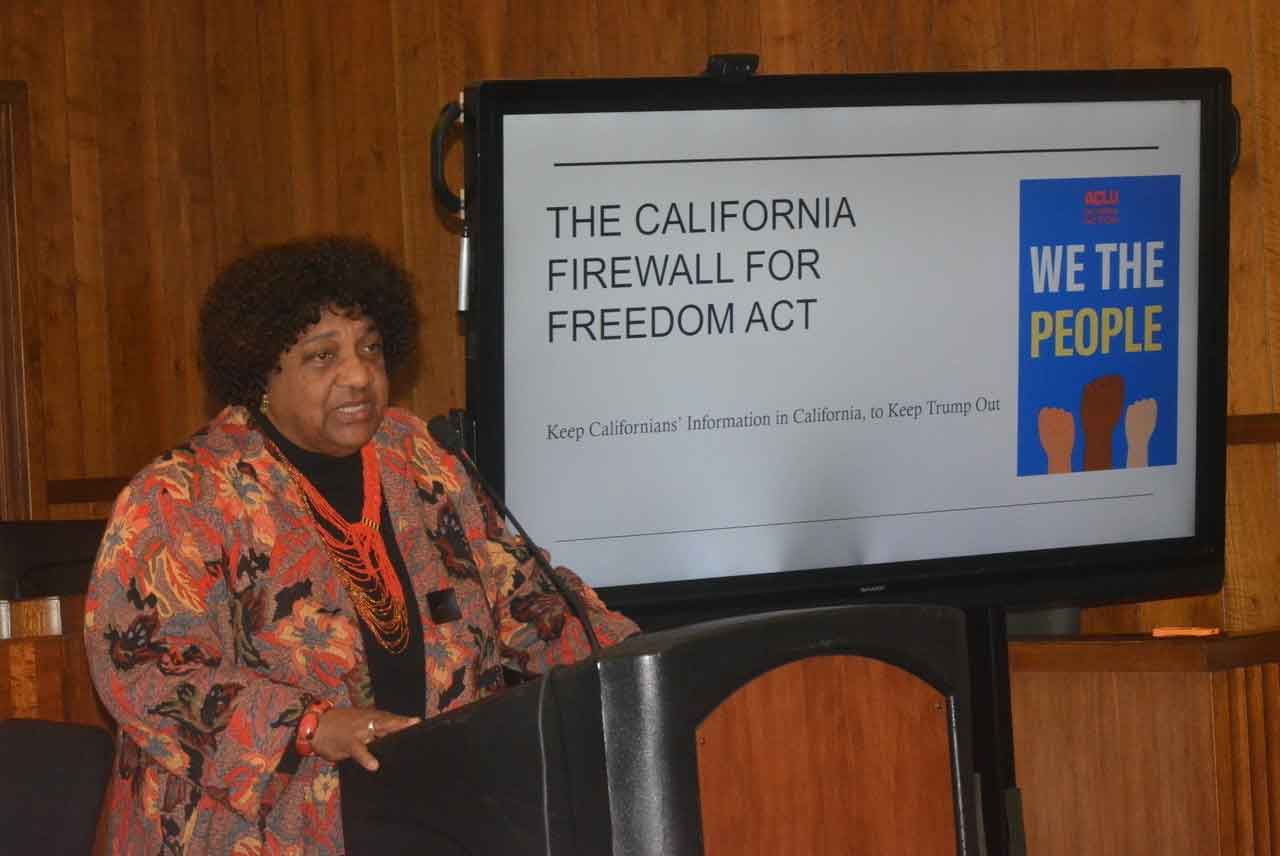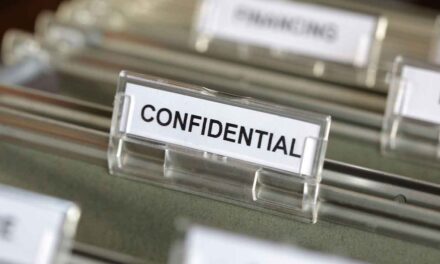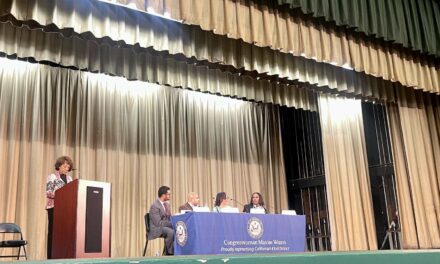Sec. of State Shirley Weber Calls New Trump Voting Law “Reckless and Unprecedented”
On March 26, California Secretary of State Dr. Shirley N. Weber released a statement condemning an executive order President Trump released the day before making sweeping changes to federal election processes around registration, voting, and the counting of ballots.

By Edward Henderson | California Black Media
On March 26, California Secretary of State Dr. Shirley N. Weber released a statement condemning an executive order President Trump released the day before making sweeping changes to federal election processes around registration, voting, and the counting of ballots.
Weber likened the President’s order to the discriminatory practices that were legal in the United States before the passage of the Voting Rights Act of 1965.
“President Trump’s executive order, “Preserving and Protecting the Integrity of American Elections,” does nothing of the sort. Instead, it is a calculated and dramatic assault on every American’s right to vote,” Weber wrote.
The order mandates that states reject ballots not received by Election Day. In California, mail-in ballots must be postmarked on Election Day but can arrive up to seven days later. Thirteen million mail-in ballots were cast during the 2024 general election in California, nearly 81% of all votes cast.
The order also requires the Election Assistance Commission to add proof of citizenship to the national voter registration form. States are required to accept that national form under federal law but can still create their own voter registration forms. If states don’t comply with the new order, they would lose federal funding for elections.
About 1 in 10 adult U.S. citizens, according to one recent survey — don’t have ready access to documents that prove their citizenship, such as a birth certificate or passport, and would face hurdles when voting.
Trump has been vocal about his concerns surrounding how ballots are counted since 2020, attributing his loss to former President Joe Biden to “unfair voting practices” like mail-in voting.
“Election fraud. You’ve heard the term. We’ll end it, hopefully. At least, this will go a long way toward ending it,” Trump said during the signing at the White House, adding, “We have to straighten out our elections.”
Among voting rights advocates, concerns have risen over the potential hurdles that requiring proof of citizenship could pose for low-income Americans. Another section of the order empowers the Department of Government Efficiency (DOGE), along with the Department of Homeland Security, to potentially subpoena states to review voter rolls for compliance with federal laws.
“Under the guise of protecting Americans from voter fraud, this unprecedented and reckless interference into state election processes is premised on a widely debunked myth of massive non-citizen voting,” Weber continued.
“Make no mistake, President Trump, through this action, shows that he fears voters and America’s longstanding principles of democracy. As California Secretary of State, I will do all in my power to ensure that all eligible Californians can freely and securely participate in our democracy.”
Sen. Alex Padilla (D-Calif.), who served as California Secretary of State before Weber, also spoke out against Trump’s order.
“I know full well that President Trump’s executive order does nothing to improve the safety of our federal elections. What it would do is disenfranchise millions of eligible American voters,” he said in a statement. “President Trump is a notorious election denier. He lacks the authority to implement many of the changes laid out in this illegal executive order, which also ignores the requirements set forth in the bipartisan Help America Vote Act.”
Although several prominent figures have questioned the President’s authority to enforce the order, it is believed widely that the Election Assistance Commission is unlikely to comply with the mandates.
Some also view Trump’s order as a revival of the Safeguard American Voter Eligibility (SAVE) Act, a bill that would’ve required anyone registering to vote in federal elections to provide proof of citizenship. The act was passed by the House of Representatives in July but was halted by the then-Democratic majority in the U.S. Senate and President Biden.
Available data shows that noncitizen voting is extremely rare. After the 2016 election, the Brennan Center for Justice, which advocates for voting rights, surveyed local election officials in 42 jurisdictions with high immigrant populations and found just 30 cases of suspected noncitizens voting out of 23.5 million votes cast.









